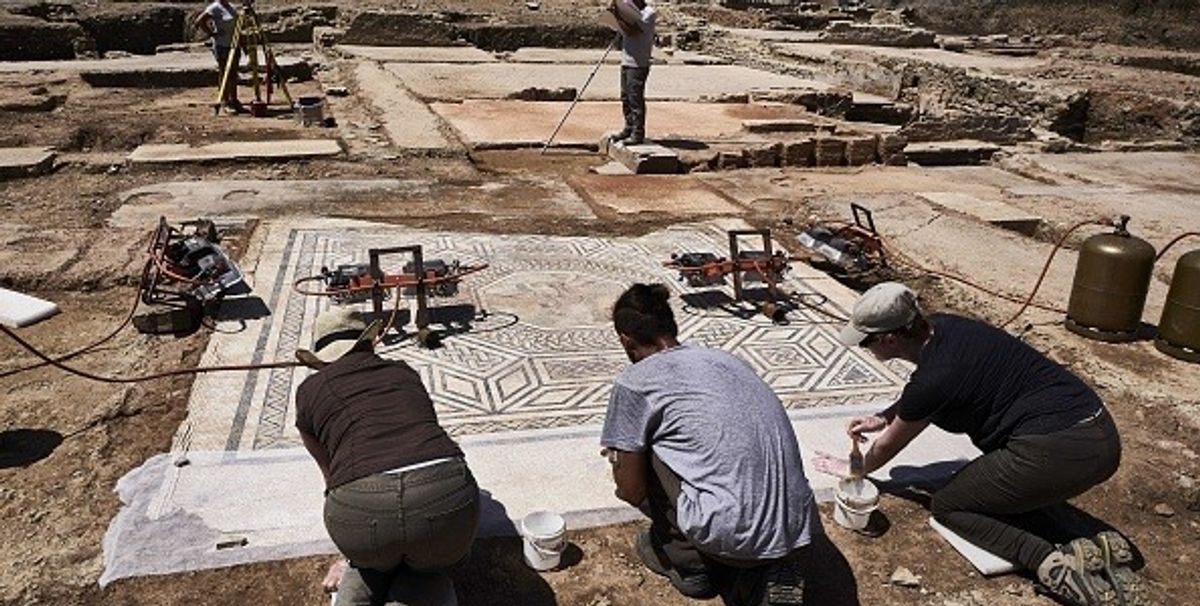A major Roman settlement discovered south of Lyon in France is the “most exceptional excavation of a Roman site in 40 or 50 years”, says the chief archaeologist working on the project. Benjamin Clément, who works for the Swiss conservation company Archeodunum, is leading a team of 15 archaeologists at the dig in Saint Colombe, a small town near the city of Vienne.
A series of mosaics and a fountain decorated with a statue of Hercules were among the discoveries made when the 5,500 sq. m site was examined in preparation for the construction of four apartment blocks. According to the Archeodunum website, a series of shops dedicated to artisanal production (foodstuffs etc.) and a wine warehouse were unearthed along with a “house organised around a 70 sq.m garden whose inner sanctum is decorated with a mosaic depicting the kidnap of [the muse of comedy] Thalia by [the god] Pan.”
Another house was destroyed by a fire in the second century, which, according to the website, “preserved its rich decoration”. Another blaze ravaged the neighbourhood in the third century; the residents fled, leaving behind a wealth of artefacts, prompting Archeodunum to call the ruins “the little Pompeii of Vienne”. Clément told The New York Times that “the fires permitted the conservation of the architecture” by carbonising the wood beams.
Work on the site began in early April; according to Clément, the mosaics will be restored and display in the Saint-Romain-en-Gal museum of Gallo-Roman civilisation near Vienne.


